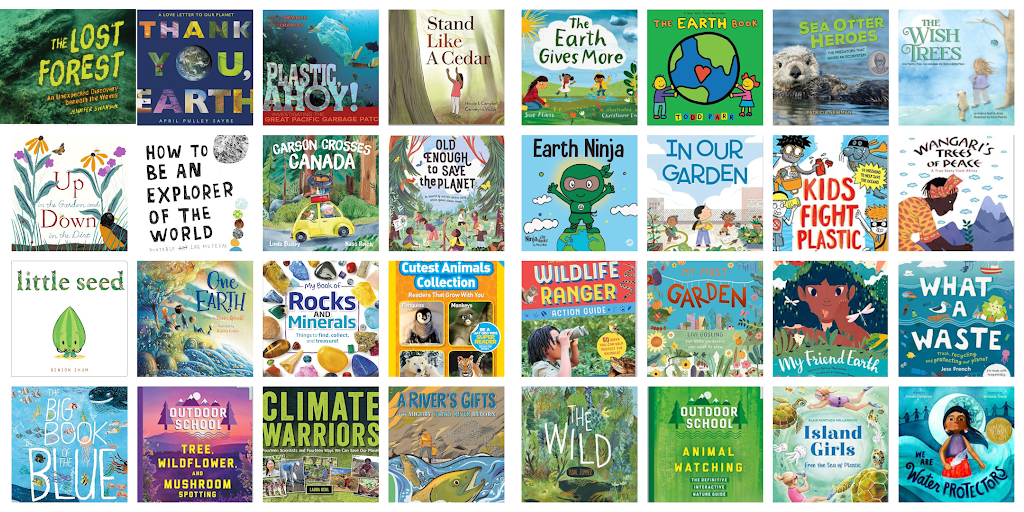Education books are a key resource for students, teachers, and lifelong learners. They offer insights, new teaching methods, and ways to improve learning. In 2024, several groundbreaking books are shaping the future of education. These ten books offer great ideas for educators and learners. They are useful for the classroom and beyond. Here is a list of the 10 Best Education Books of 2024. It’s perfect for teachers, parents, and anyone interested in the evolution of learning.
List of 10 Best Education Books 2024
- “Learning in the Age of AI” by Sarah Thompson
- “Flipping the Classroom: A 2024 Guide” by Dr. Alan Woods
- “Inclusive Education Strategies” by Priya Patel
- “Digital Literacy for the 21st Century” by David Nguyen
- “Beyond the Basics: Teaching Critical Thinking” by Emma Harris
- “Empathy in Education” by Michael Reed
- “Mindfulness in the Classroom” by Jessica Lopez
- “Rethinking Homework” by Caroline Jenkins
- “The Science of Reading: New Perspectives” by Dr. Maria Evans
- “Design Thinking for Educators” by Samuel Adams
“Learning in the Age of AI” by Sarah Thompson
Learning in the Age of AI,” one of the Top New York Best Selling Books, dives into the impact of artificial intelligence on education. It explores how AI is changing classrooms. It enables personalized learning and automates tasks for teachers. Thompson provides practical strategies for integrating AI into everyday lessons. She also addresses the challenges of data privacy and the need for digital literacy. This book is essential for educators who want to stay ahead of the technological curve.
Key Takeaways:
- Personalized learning through AI.
- Practical tools for teachers.
- Ethical concerns in AI use.
“Flipping the Classroom: A 2024 Guide” by Dr. Alan Woods
This book is a complete guide to the flipped classroom model. In it, students learn new content at home and do activities in class. Dr. Woods breaks down the concept and provides step-by-step strategies for educators. Using this model, teachers can create more interactive classrooms and focus on students’ needs. The book is packed with case studies, examples, and lesson plans for every subject.
Key Takeaways:
- Effective strategies for flipping the classroom.
- Benefits for student engagement.
- Ready-to-use lesson plans.
“Inclusive Education Strategies” by Priya Patel
Inclusive Education Strategies is a must-read for educators. It helps them create an inclusive environment for all students. Priya Patel outlines ways to help students with diverse needs, disabilities, and cultures. She stresses working with parents and professionals. It’s to ensure all children get a quality education. This book has practical examples and methods. They make classrooms more inclusive.
Key Takeaways:
- Inclusion strategies for diverse learners.
- Importance of collaboration in education.
- Real-life examples for immediate application.
“Digital Literacy for the 21st Century” by David Nguyen
David Nguyen’s book emphasizes the importance of digital literacy in today’s education system. He provides tools and frameworks to teach students to navigate the digital world responsibly. Nguyen’s work tackles misinformation, cybersecurity, and digital footprints. It’s a must-read for educators in 2024. It is perfect for teaching students to use technology safely and effectively.
Key Takeaways:
- Digital literacy frameworks.
- Teaching students about cybersecurity.
- Responsible use of online tools.
“Beyond the Basics: Teaching Critical Thinking” by Emma Harris
Beyond the Basics focuses on teaching critical thinking skills to students. Emma Harris thinks critical thinking is key to success in education and life. The book gives methods to develop these skills in students of all ages, from elementary to high school. Harris includes exercises, activities, and assessments for immediate classroom use.
Key Takeaways:
- Strategies to teach critical thinking.
- Activities that build problem-solving skills.
- Tools for assessing critical thinking.
“Empathy in Education” by Michael Reed
In Empathy in Education, Michael Reed discusses emotional intelligence’s importance in the classroom. He argues that empathy should be at the core of teaching. Reed provides tools to improve connections between teachers and students. It also fosters a positive, supportive learning environment. This book is a must for educators. It helps them build a classroom culture that values understanding and respect.
Key Takeaways:
- The role of empathy in education.
- Building emotional intelligence in students.
- Strategies for a supportive classroom.
“Mindfulness in the Classroom” by Jessica Lopez
Jessica Lopez’s book is a practical guide for introducing mindfulness into the classroom. It offers techniques to help students. They can manage stress, improve focus, and become more aware of their emotions. Lopez outlines simple exercises that teachers can integrate into their daily routines. By practicing mindfulness, students can improve their emotional regulation and readiness to learn.
Key Takeaways:
- Benefits of mindfulness for students.
- Easy-to-implement mindfulness exercises.
- Reducing stress and improving focus.
“Rethinking Homework” by Caroline Jenkins
Caroline Jenkins examines homework’s role in modern education. She suggests alternatives to traditional assignments. Her book calls for better homework. It should engage students and boost learning, without overwhelming them. Jenkins also offers strategies for teachers to talk with parents about homework. This ensures a balanced approach to learning outside the classroom.
Key Takeaways:
- Alternatives to traditional homework.
- Strategies for balancing work and life.
- Enhancing learning with meaningful assignments.
“The Science of Reading: New Perspectives” by Dr. Maria Evans
Dr. Maria Evans presents new research on reading instruction. It is in The Science of Reading. This book gives new insights into how students learn to read. It shows teachers how to apply research-based methods in the classroom. Evans provides strategies for addressing reading difficulties and boosting literacy rates. It’s a must-read for teachers focused on improving reading outcomes for students.
Key Takeaways:
- Research-backed reading instruction techniques.
- Addressing reading challenges.
- Improving literacy rates.
“Design Thinking for Educators” by Samuel Adams
Design Thinking for Educators by Samuel Adams introduces a new way to solve problems in teaching. This book encourages teachers to use design thinking to foster creativity and innovation in students. Adams gives exercises and examples to help educators use this framework in their classrooms. It’s a great resource for teachers who want to inspire students to think outside the box.
Key Takeaways:
- Design thinking framework for education.
- Encouraging creativity and problem-solving.
- Real-world examples for classroom use.
FAQ’s
What is Mini Militia Mod Apk Unlimited Ammo and Nitro?
It’s a modified version of the Mini Militia game that offers unlimited ammo and nitro boosts.
Is it safe to use Mini Militia Mod Apk?
No, using modded apps carries security risks like malware and data theft.
What is the best education book in 2024?
“Learning in the Age of AI” by Sarah Thompson is highly recommended for educators.
How can AI improve learning in classrooms?
AI personalizes learning experiences and automates repetitive tasks for teachers.
Conclusion
These ten books represent the best of educational literature in 2024. Each one offers practical insights and research-based strategies. They provide new ways to improve teaching and learning. These resources will help you stay ahead in education. They are for teachers, administrators, and students. Read these books to inspire new ideas and transform your classroom.

